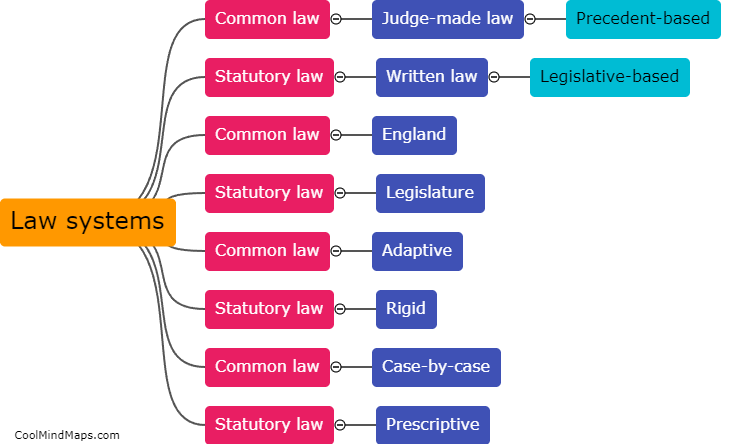Differences between common law and statutory law
Common law refers to the legal system that derives its principles and rules from judicial decisions, rather than statutory provisions. In contrast, statutory law refers to written laws enacted by a legislative body, such as a state or federal government. The main difference between common law and statutory law is that common law is based on precedent and experience, whereas statutory law is based on codified rules and regulations. In common law, judges rely on prior case decisions to make decisions on new cases, while statutory law is enforced by statutory enactments that provide specific guidelines and regulations. As a result, common law tends to be more flexible, while statutory law is more rigid and formal.

This mind map was published on 18 May 2023 and has been viewed 112 times.











